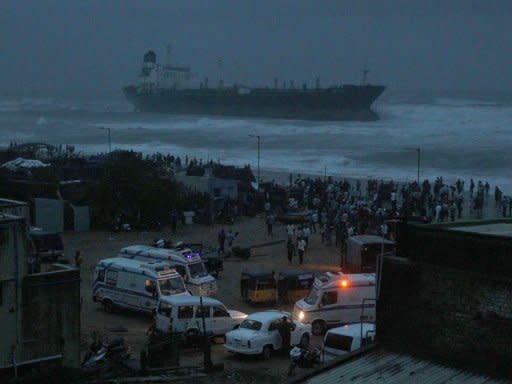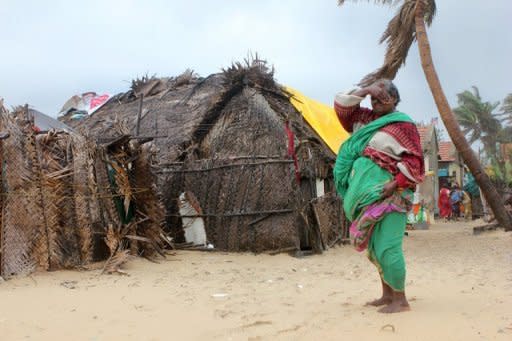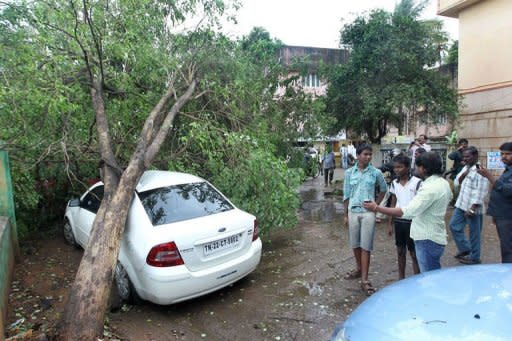Evacuation as cyclone strikes India's southeast
Thousands of people evacuated from their homes in southeast India Wednesday as a cyclone slammed into the coast, killing two people, according to reports, and causing an oil tanker to run aground. Cyclone Nilam struck the historic port of Mahabalipuram, 50 kilometres (30 miles) south of Chennai, and is forecast to cross the states of Tamil Nadu and Andhra Pradesh overnight. The Press Trust of India (PTI) reported that strong winds forced an oil tanker to run aground off the Chennai coast Wednesday afternoon, and said one of the ship's 37 crew members drowned when the lifeboat carrying him capsized. Rescuers searched frantically for six remaining crew members reported missing in the accident. Officials in Tamil Nadu state evacuated thousands of people living close to the coast earlier in the day. "More than 5,000 evacuations have been completed," Jayraman, a disaster management official in Chennai, who only uses one name, told AFP. The latest bulletin from the India Meteorological Department predicted that winds gusting up to 85 kilometres (49 miles) an hour would trigger heavy rain along India's southeastern coast before the cyclone weakened overnight. In the former French colony of Pondicherry, a 46-year-old man drowned when he was swept into the turbulent sea while walking along the coast, PTI reported. The Tamil Nadu government ordered fishermen not to go out to sea until the cyclone weakened. "We have advised all the schools and colleges to remain closed for the day," Jayraman told AFP. "All maritime activities have been suspended and the government is monitoring the situation closely." The cyclone did not make landfall in Chennai, the state capital of Tamil Nadu and home to five million people, before heading inland, he added. An earlier government bulletin had said the cyclone would likely cause flooding of low-lying areas, extensive damage to thatched roofs and huts and also uproot large trees, leading to power blackouts and communication problems. Local authorities said they were preparing helicopters and boats for any emergency. Existing cyclone shelters, schools and community halls have also been identified to serve as potential relief camps. Many shops, government offices and private companies closed early to allow people to travel home before the cyclone struck. Neighbouring Sri Lanka on Tuesday allowed thousands of people who had been evacuated to return to their homes after the storm, which had been expected to hit the island, changed course and moved towards India. The last cyclone in India struck in the same southeast region in January, claiming 42 lives and leaving a trail of destruction across Tamil Nadu. India and Bangladesh are hit regularly by cyclones that develop in the Bay of Bengal between April and November, causing widespread damage to homes, livestock and crops. Andhra Pradesh saw its worst cyclone in 1977 when more than 10,000 people were killed.



